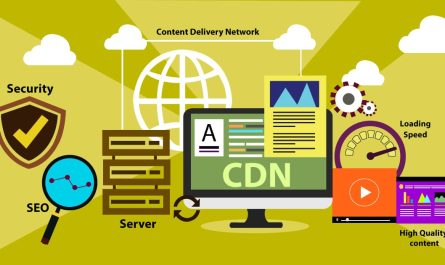In the fast-paced digital landscape, where every click and scroll is powered by the invisible machinery of web hosting, it’s easy to overlook the intricate details that could be quietly chipping away at your budget. While choosing a web hosting provider, the tempting allure of low monthly fees might blind you to the lurking, hidden costs that can emerge later, turning your seemingly affordable hosting solution into a financial headache.
Let’s dive into the shadows and uncover the concealed expenses that could be stealthily impacting your web hosting budget:
Bandwidth Overages:
Many hosting providers offer enticing bandwidth limits, but exceeding them can lead to unexpected charges. Make sure you understand your website’s traffic requirements and choose a plan that accommodates your needs. Be wary of providers that impose hefty fees for exceeding your allocated bandwidth.
Renewal Rates:
The initial discounted rate you snagged during sign-up might be a fraction of what you’ll pay upon renewal. Providers often lure customers in with attractive introductory offers, only to significantly increase prices when it’s time to renew. Always scrutinize the renewal rates and factor them into your long-term budgeting.
Web Hosting
Hidden Upgrade Costs:

Starting with a basic plan may seem like a cost-effective strategy, but some providers make it challenging to upgrade seamlessly. Be aware of hidden fees or migration costs associated with upgrading your hosting plan or adding features like SSL certificates, additional storage, or dedicated IP addresses.
Backup and Restore Fees:
While backups are a crucial part of website management, some hosts charge extra for regular backup services or restoration of your website from a backup. Understand the backup policies of your hosting provider and whether there are additional charges for this essential service.
Domain Registration Costs:
It’s common for hosting providers to offer a free domain for the first year. However, check the renewal rates for domain registration, as these can be higher than what you’d pay through a dedicated domain registrar. Transferring your domain away from your hosting provider might also incur fees.
Customer Support Fees:
While excellent customer support is essential, some hosts charge extra for premium support services. Be sure to understand the level of support included in your plan and whether there are additional charges for priority assistance or extended support hours.
Resource Limitations:
Some hosting plans come with strict resource limitations, such as CPU usage and memory. Exceeding these limits can result in downtime or additional fees. Understand your website’s resource requirements and choose a plan that can handle your traffic and performance needs.
Navigating the Hosting Landscape:
As you tread the intricate path of web hosting, it’s crucial to consider your website’s growth trajectory. What may be sufficient for your current needs might fall short as your online presence expands web hosting. Take a moment to assess your long-term goals and select a hosting provider that can scale with you without unleashing hidden costs.
Transparency as a Benchmark:
Seeking transparency from your hosting provider is akin to turning on the light in a dimly lit room. Trustworthy hosts are upfront about potential additional charges, making it easier for you to make informed decisions. Prioritize providers who disclose renewal rates, upgrade costs, and any other potential fees with clarity.
The SSL Conundrum:
In an era where online security is paramount, the importance of an SSL certificate cannot be overstated. Some hosting providers offer a free SSL certificate, while others charge an additional fee. Ensure that your chosen plan includes SSL or be prepared for an unexpected expense that guarantees your visitors a secure browsing experience.
Downtime Equals Dollars:
Hidden costs aren’t always monetary; they can manifest in the form of downtime. Some budget-friendly hosting solutions may compromise on server reliability, leading to more frequent outages. Calculate the potential revenue loss during downtime and weigh it against the initial savings offered by the hosting plan.
E-Commerce Considerations:
If your website involves e-commerce functionalities, be vigilant about transaction fees. Some hosting providers take a percentage of each sale made through your website. Factor in these transaction costs when evaluating the overall affordability of your chosen hosting solution.
Know Your Contract Terms:
Contracts can be a maze of legal jargon, but understanding the terms and conditions is imperative. Hidden fees may be lurking within the fine print, such as charges for early contract termination or additional fees for exceeding specified usage limits. A careful review of your hosting contract can save you from unpleasant surprises down the road.
The True Cost of Freebies:
Free site builders, email services, or marketing credits often come bundled with hosting plans as attractive perks. While these may seem like cost-saving bonuses, evaluate their true value web hosting. Free offerings might lack the sophistication and functionality of dedicated services web hosting, prompting you to invest in premium tools separately.
The Road Ahead: Smart Strategies for Cost-Efficient Hosting
Now that we’ve unveiled the clandestine expenses that can tag along with web hosting, let’s explore proactive strategies to mitigate these hidden costs and maximize your budgetary efficiency.
1. Regularly Audit Your Resource Usage:
Stay ahead of potential overage fees by routinely auditing your website’s resource usage. Monitoring factors like bandwidth, storage, and CPU usage allows you to make informed decisions about whether an upgrade is necessary. Opt for hosting providers that offer scalable solutions to accommodate your growing needs without breaking the bank.
2. Stay Informed About Renewal Rates:
Knowledge is power, especially when it comes to renewal rates. Stay informed about the terms and conditions of your hosting provider, and set reminders for upcoming renewals web hosting. Regularly reassess your hosting needs and be prepared to negotiate with your provider or explore alternatives if the renewal rates become unfavorable.
3. Consider Long-Term Commitments:
While monthly plans provide flexibility, they often come with higher costs. Consider committing to longer-term contracts if you’re confident about the reliability and performance of your chosen hosting provider. Many providers offer discounts for annual or multi-year commitments, potentially reducing the impact of renewal rate surprises.
4. Explore Open-Source Solutions:
If your budget is tight, consider open-source alternatives for tools and applications. Platforms like WordPress, Joomla, and Drupal offer powerful content management systems without the hefty licensing fees associated with some proprietary solutions. Additionally, many open-source tools have vibrant communities that can provide support and guidance web hosting.
5. Negotiate with Your Hosting Provider:
Don’t be afraid to negotiate with your hosting provider. If you’ve been a loyal customer or have found better deals elsewhere, reach out and see if there’s room for negotiation. Some providers are willing to offer discounts or additional services to retain their customers.
6. Invest in a Content Delivery Network (CDN):
A CDN can be a cost-effective solution to reduce bandwidth usage and improve website performance. By distributing your content across a network of servers, CDNs can lower the burden on your hosting server, potentially saving you from unexpected bandwidth overage charges.
7. Regularly Back Up Your Website Independently:
While hosting providers offer backup services, consider regularly backing up your website independently. This not only provides an additional layer of security but also ensures that you have control over your backups without incurring extra fees from your hosting provider.
Final Thoughts:
The journey through the world of web hosting doesn’t end with selecting a provider; it’s an ongoing process that demands vigilance and adaptability. By staying informed, regularly assessing your needs, and adopting strategic practices, you can navigate the hosting landscape with confidence, avoiding the pitfalls of hidden costs that may lurk in the shadows.
Remember, the true value of web hosting goes beyond the price tag. It encompasses reliability, performance, and support. Armed with knowledge and a proactive mindset, you can optimize your hosting experience, ensuring a seamless digital presence without compromising your budget.




